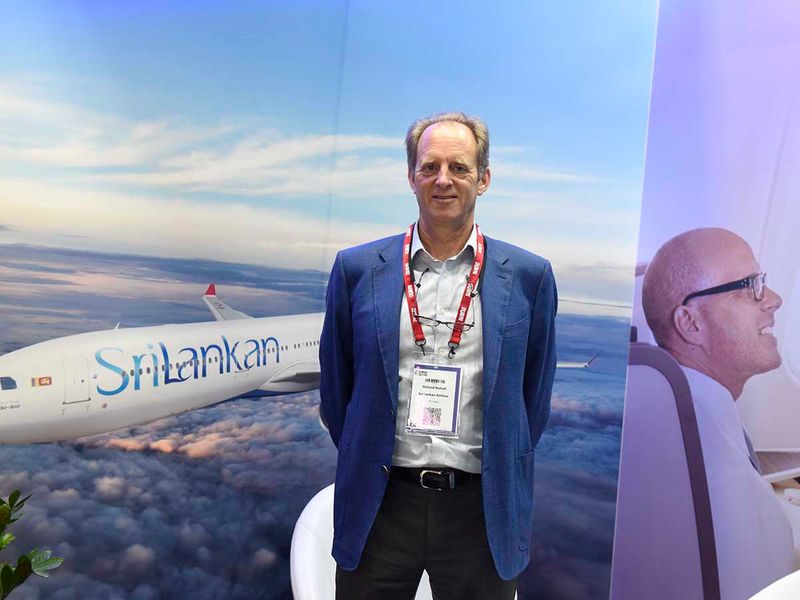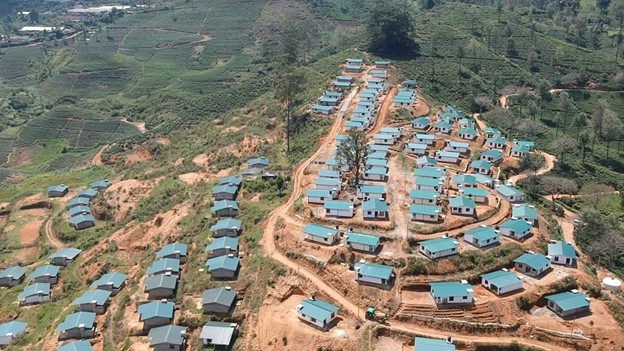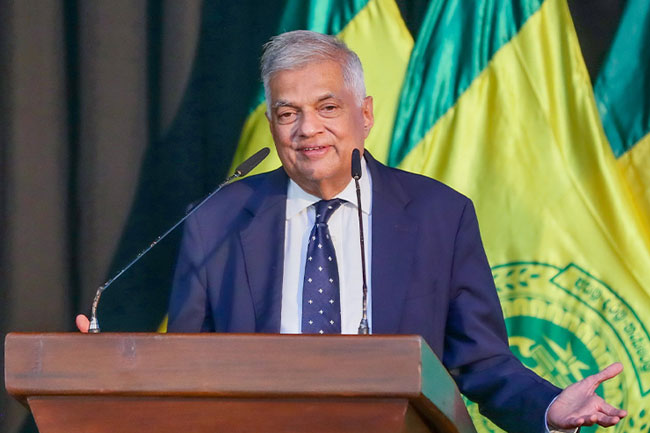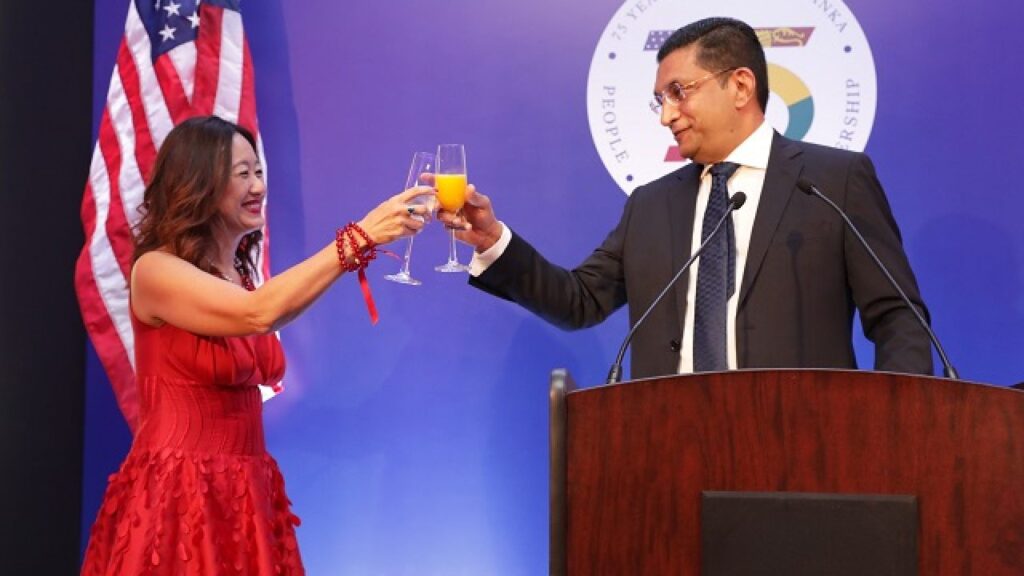Call for strategic guidance for ocean research in the seas off Sri Lanka
July 15th, 2024By Asiri Fernando/The Sunday Morning Courtesy NewsIn.Asia
Colombo, July 14: Sri Lanka’s efforts to build sovereign capacity for marine scientific research and expand its understanding of its maritime domain and resource require strategic guidance, says former Naval Chief of Staff and Chief Hydrographer, Admiral (Retd) Y.N. Jayarathna.
More than the equipment, I would say what we need most is strategic guidance on how and what to do with ocean science for Sri Lanka. Once we have strategic guidance, everything else will gradually fall into place. Marine science and related equipment that are used for it are costly. Our national budget may not be able to fund them effectively.”
Therefore, for some time, we may have to depend on foreign donations. We will have to work with what we have. But to do so, we need to know what our national goals are for marine science. We have to plan these out. That’s why strategic guidelines is important,” Adm. Jayarathna told The Sunday Morning.
He pointed out that the data gathered from Marine Scientific Research (MSR) over the last few decades remained underutilised as national objectives and a roadmap to reach them were not clearly issued by the State.
When asked about Sri Lanka’s current sovereign capacity for Marine Scientific Research Adm. Jayarathna stated: I would say our capacity is good, although we lack modern equipment. However, what we really lack is usage of what we have in hand. Our oceanographers are confined to the coastal area; they need to go out to the Exclusive Economic Zone (EEZ) and the high seas. We do not have the vessels for them to go to the high seas and spend two to three weeks at sea conducting research. Even if they do go, they lack deep sea research equipment to make the most of such a journey.”
Adm. Jayarathna also pointed out that due to the absence of meaningful funding for MSR, Sri Lankan academia and State institutions had got into the habit of welcoming any foreign funding and research opportunities.
When asked about Sri Lankan academia’s collaborations with foreign entities, the concerns that surround such agreements, and the lack of transparency about what becomes of the data derived from joint research that had taken place in the past, he said: Some universities jump at the funding and opportunities many foreign academia/institutions bring. They do so because there has been little or no funding from the State. Because the State is not investing, the universities work in a narrow-minded manner, which is where the problems start.”
When they do joint research, we later find that the data collected is missing. When the Navy was tasked with the National Maritime Data Repository, we found that much of the data from past joint research was missing. Or the data is there, but no one can access it, nor do we have the specific/proprietary software needed to access it. This is because local researchers who were part of the survey had travelled overseas for higher education or migrated.”
As such, it is important for Sri Lanka to first get its house in order while capacity-building is being done.
One of the other key issues that needs to be addressed is the lack of understanding in the State leadership regarding the subject, which necessitates awareness building within the policymaking community.
No change in Moratorium
Earlier this month, foreign and local media reported that Sri Lanka had decided to lift the one-year moratorium on research by foreign MSR vessels in Sri Lankan waters and its EEZ. However, Minister of Foreign Affairs Ali Sabry refuted these reports.
Speaking to The Sunday Morning, Minister Sabry stated that reports had misquoted the essence of what he had said in an interview, and that no decision had been made by the Government regarding the moratorium, which was introduced for 2024.
This is misquoting the essence of it. Right now, we have a moratorium until the end of the year. We will assess the situation at the end of the year and then decide whether to continue the moratorium or lift it, in that there is a possibility of lifting it. However, it all depends on us and our institutions building sovereign capacity for such surveys,” Sabry said.
Of course, as a nation that aspires to become a regional and global maritime hub, we are duty-bound to respect and recognise our obligations in terms of the United Nations Convention on the Law of the Sea (UNCLOS) to provide facilities for port call and replenishment. Naturally, being a neutral and non-aligned country, we cannot have different rules for different countries, and thus China will also have equal opportunities just like any other country,” Sabry explained.
The Foreign Minister pointed out that control tools like the moratorium could not be kept in effect indefinitely, as it negatively affected the country’s national interest, adding that Sri Lanka would consider reviewing it once the island nation is comfortable with its sovereign capacity-building.
Sovereign capacity-building
In mid-2023, with heightened geopolitical pressure from India, the US, and other nations due to the multiple visits by Chinese MSR vessels, the Sri Lankan Government decided to build sovereign capacity for hydrographic research, reaching out to several countries for assistance.
India, Australia, Japan, and the UK are in discussion with Sri Lanka to aid in the effort. Sri Lanka also enacted new laws and established a National Hydrographic Office under the Ministry of Defence to further the national goal.
The Japanese government in May this year announced that it would offer Sri Lanka a vessel equipped for underwater surveys, which would aid in capacity-building to conduct hydrographic research and chart Sri Lanka’s maritime domain.
Visiting Japanese Foreign Minister Yoko Kamikawa stated: Japan and Sri Lanka are both island nations surrounded by the sea. Japan intends to further strengthen cooperation with Sri Lanka in the maritime domain in order to realise a ‘free and open’ Indo-Pacific. In this regard, based on a request from Sri Lanka, I have conveyed to Minister Sabry that Japan will offer a vessel equipped with sonar to be used for compiling maritime charts.”
According to State Minister of Defence Premitha Bandara Tennakoon, Sri Lanka is currently in discussions with Japan on the delivery and capacity-building for hydrography.
Tennakoon told The Sunday Morning that Sri Lanka is also in discussion with countries like the UK, India, the US, Australia, and France for sovereign capacity-building for marine scientific research.
It is reliably learnt that Sri Lanka may receive a towed multi-beam sonar for undersea surveys next year, which will be a significant capacity improvement for the island nation. Multi-beam surveys are a form of acoustic survey that uses sound to map the depth and topography of the seafloor.
When asked about Japanese plans to donate a vessel capable of hydrographic research to Sri Lanka, which was announced during Kamikawa’s recent visit to Colombo, Foreign Minister Sabry said that the matter is progressing quickly and that Japan is coordinating the donation with the Sri Lankan Government including the Ministry of Defence.
Control and Clarity in SOP
According to senior government officials in touch with the matter, an updated Standard Operating Procedure (SOP) to grant diplomatic clearance to conduct marine research in Sri Lankan waters, its EEZ, and the continental shelf, is linked to Articles 238 and 265 of the UNCLOS.
It is reliably learnt that the SOP covers the approval-seeking process for foreign MSR vessels to conduct research and to call at Sri Lankan ports.
The new SOP dictates that a foreign research vessel must lodge a request to call at one of our ports or for a joint research, six months prior to the commencement of the research or arrival at a port. The foreign party must inform of any amendments two months ahead of schedule. Under the new SOP, Sri Lanka has also dictated that we may not consider requests to survey resource exploration and exploitation or destructive surveys, such as those where drilling of seabed or demolitions are involved.”
We will also decline any request where we find inaccuracies in the information provided. We have banned the use of the data collected for any military purpose by the foreign state which jointly conducts the research. We will have Navy observers on-board, check and verify equipment on-board, and the ships must keep their satellite beacon (Automatic Identification System – AIS tracking) switched on at all times during the survey,” a senior Government official told The Sunday Morning on condition of anonymity.
It is also learnt that the government reserves the right to suspend any approval granted if the research carried out diverts from that in the application. Further, if the research request involves several foreign states, the state which makes the application is considered as the key applicant. International organisations of research repute can also apply for permission for joint research.
The senior government source also stated that the SOP dictated that all data gathered by joint research in the future shall be given to the Sri Lankan government and that Sri Lanka provided access to such data and reports derived from the research.
President Ranil Wickremesinghe stated in New Delhi and in Washington that Sri Lanka has consulted the countries that have raised concerns about frequent visits by Chinese MSR and satellite tracking vessel and the control of data derived from research (as they have potential for military applications).
The new SOP appears to be tailored to address such concerns and for Sri Lanka to protect its national interest when working with foreign research partners.
While the SOP is in effect, and as Sri Lanka has permitted some MSR vessels to call port for replenishment, no permission has been granted to any foreign MSR vessel to conduct research in Sri Lankan waters and its EEZ to date.
Chinese MSR Vessel in the IOR
It must be noted that the moratorium has not stopped Chinese MSR vessel visits to the Indian Ocean, with multiple vessels including satellite tracking vessels conducting surveys in the Indian Ocean Region (IOR), calling on ports in the Maldives and in other countries over the past seven months.
This week, Chinese MSR vessel Zhong Shan Da Xue (IMO: 9909534) is reportedly in the southern Indian Ocean, while Xiang Yang Hong 3, whose visit Sri Lanka turned down in December 2023 (the vessel later called port in the Maldives and conducted extensive surveys in the south Indian Ocean), has returned to the IOR, according to The Intel Lab Geo-Intelligence Researcher Damien Symon.







